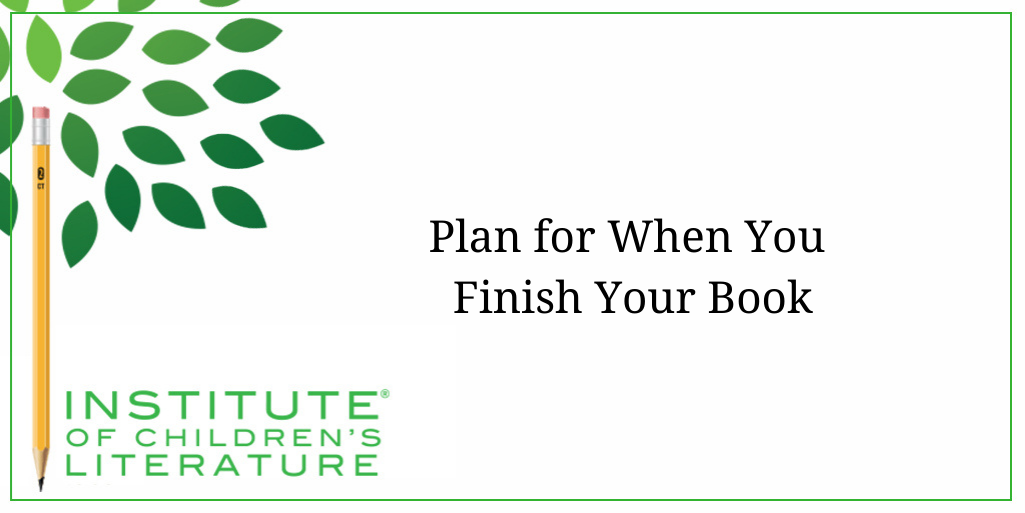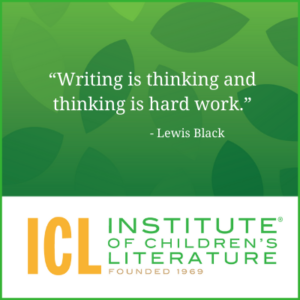
5 Ways Writers Can Prep for 2025 Goal Setting
Before we roll on to the new writing year, let’s harness our optimism for the blank slate before us and prepare for our 2025 Goal Setting just for writers.

We teach our students how to write and get published!
View our Course Catalog>
Most of us know that once we reach the end of our book, we’re still a long way from finished. Not only do we need to put some serious time into revision to turn what came out of our heads into something that can go smoothly into the heads of our readers, but we also need a plan for what we’re going to do writing your book. So, part of the end of the project needs to be planning for what comes next.
Personally, I find that revision always goes better if I take a moment to cherish and celebrate finishing the writing part of the book. Finishing the writing means I stuck the landing. I didn’t quit. I didn’t wander off to work on something else. I stayed until it was done. For me, with the attention span of a Golden Retriever, finishing the book is deserving of a little “atta girl.” I like to take a break and read a book, paint a picture, or catch up with all the chores that kept getting pushed aside while I was finishing the book. It’s a time of mental renewal. It lets me reset from doing one thing to doing the next thing. And I work hard not to let the breather disappear from my schedule because it’s important. It makes me handle what comes next better.
It’s also important not to let the breather go on for too long. Because the next steps in the process can be challenging, it’s easy to get sidetracked and end up never actually finishing the book. Sure, we finish the writing, but then somehow, we head on to a new project, intending to get back to the revisions for that other one, eventually. So, I guard my breather, but I also take care that it’s only a rest stop, and I get back to the original project after my rest break and bring it to full completion.
After my little break, I find it easiest to move on to the next steps when I have a plan for how to go about it. Because I’ve written many books, I have procedures for how to tackle revision, using several passes through the manuscript to bring it up to the best work it can be. In the revision process, I do big picture revisions (for flow, voice, continuity, characterization, motivation, transitions, etc.) usually with one pass for each item. Then I do the more nuts-and-bolts picky stuff like grammar, punctuation, overused words, consistent verb tenses, consistent spellings of character names, consistent ages, and chronology mistakes (one of my huge weaknesses involves losing track of the day of the week. I do it in real life, and I do it in writing. In my books, I actually have to fix it.) I sometimes need to add specific revision steps such as revising to meet specific word counts or a specific pass where I check all my facts. Having a revision plan broken into clear steps helps me to avoid skipping important revision work.
My final plan involves what to do to see this revised, improved, thoroughly polished manuscript become a published book. First, I need to decide exactly what kind of publisher will work best for this project. And I need to do that based on what works best for the project, not based on my lack of confidence or my fear of the process.

If your book would not benefit from self-publishing, that means the next step is deciding what sort of publisher would work best. A book that you know would be an excellent series beginning and has a clear link to an education-friendly area (such as having a STEM element) might work well pitched to an educational publisher like Kane Press, for example. A book that is not a series contender but has a wide readership interest might be best at a large commercial publisher. Or maybe the tone of your novel is more literary, and there is a perfect mid-sized commercial publisher who would love it. Or maybe your picture book manuscript is both literary and quite long, if so, there are a couple of independent publishers that might be a match. Understanding your book well will help you understand where it would work best.
Once you know what kind of publisher fits your work, you need to look critically into the publishers within that group. Learn as much as you can about each of them. Then make a list, ranking the publishers from best match with your project to possible match with your project. Any that would be a poor match with your project shouldn’t be on your list at all. Dig in deeper and see how the publisher likes to be approached. Most educational publishers look at proposals and don’t require writers have agents. Most big commercial publishers accept submissions only through an agent. This means that working with most big commercial publishers and many mid-sized independent publishers will require one more step: researching agents to find the one that best matches your project and then learning how that agent prefers to be contacted.
The research step to making a publishing match can be exhausting so it’s another place where writers need a plan. Because I don’t enjoy this step much, I tend to do my research in small bites throughout the writing process. Because of that, I have most of this information by the time the book is done. That works only if you know yourself and are confident that looking at agents and publishers while writing won’t make you want to rush the book to get it out to the publisher or agent you feel is the perfect match. A perfect match requires a really good book, so don’t skimp on the book part.
Finishing the book may not be quick and often it involves a lot more work than we expected. I think that might be good. Who would take on writing if they knew it was going to be hard, uncomfortable work? Instead, most of us jump in and then end up dealing with the work part only because it’s required to finish the book and get it into the hands of readers. This can be tiring and unpleasant, but when it starts to get you down, picture the face of the young reader holding your book and turning the pages for the first time, completely engaged in what you wrote. At this point in my life, I’ve gotten letters from a good many of those readers, and I can tell you, they make all the work well worth it.
So, make a plan, work the plan without quitting, and finish the book!
With over 100 books in publication, Jan Fields writes both chapter books for children and mystery novels for adults. She’s also known for a variety of experiences teaching writing, from one session SCBWI events to lengthier Highlights Foundation workshops to these blog posts for the Institute of Children’s Literature. As a former ICL instructor, Jan enjoys equipping writers for success in whatever way she can.

Before we roll on to the new writing year, let’s harness our optimism for the blank slate before us and prepare for our 2025 Goal Setting just for writers.

Writers can be thin-skinned when it comes to getting feedback on their work. Let’s look at 4 ways to positively deal with constructive criticism!

Rejection is part of the territory when it comes to being a writer. Today we offer reflection for writers to help redirect your efforts after a rejection.
1000 N. West Street #1200, Wilmington, DE 19801
© 2024 Direct Learning Systems, Inc. All rights reserved.
1000 N. West Street #1200, Wilmington, DE 19801
© 2024 Direct Learning Systems, Inc. All rights reserved.
1000 N. West Street #1200, Wilmington, DE 19801
© 2024 Direct Learning Systems, Inc. All rights reserved.
1000 N. West Street #1200, Wilmington, DE 19801
© 2024 Direct Learning Systems, Inc. All rights reserved.

1000 N. West Street #1200, Wilmington, DE 19801
© 2025 Direct Learning Systems, Inc. All rights reserved.

1000 N. West Street #1200, Wilmington, DE 19801
©2025 Direct Learning Systems, Inc. All rights reserved. Privacy Policy.
3 Comments
I thoroughly enjoy every article, hint, best practice, encouragement and writing opportunity I recieve in my mailbox coming from Institute of Children’s Literature.
And after reading the part where you mention that receiving letters from readers is a huge positive boost that makes the writing journey even sweeter, I wonder, do you have any tips or advice on what kind of contact details you would post for readers to reach a writer? And where would you have that information listed, written or posted? Im asking as to find a balance between being reachable but also keeping my privacy somewhat.
Thanks in advance!
Regards
Thkb
Hi Thkb! Thank you for your kind words. We generally include a name with a testimonial but no contact information. Here is a page of testimonials: https://www.instituteforwriters.com/what-our-students-say/
Occasionally, we use these in email marketing, but again, just the name and no other contact information. If you have additional questions, please contact us at info@instituteforwriters.com.